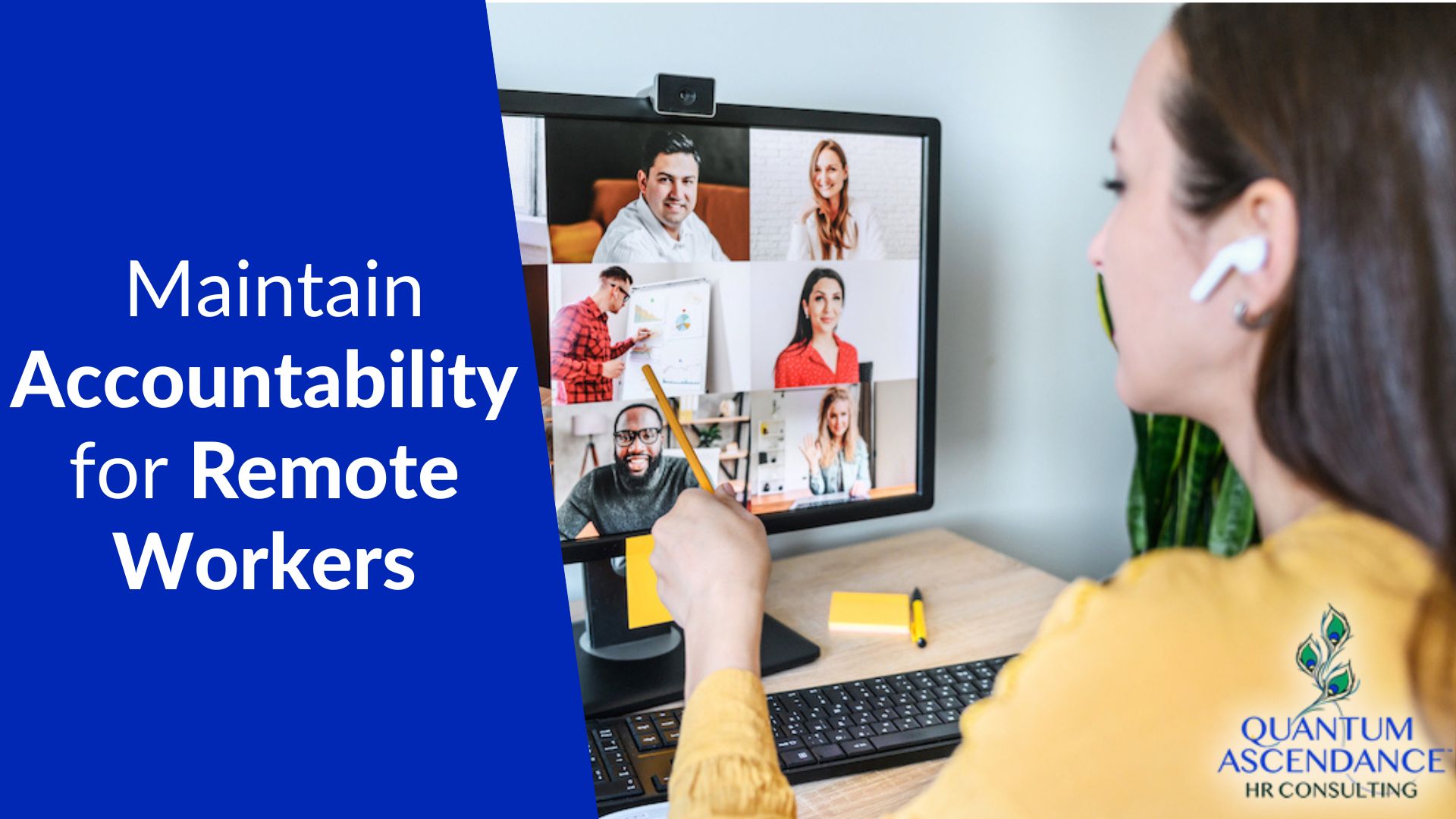
After everything that’s taken place over the last few years, working from home has become more common than ever.
Love it or hate it, remote work has gone from being an obscure luxury that only a select few enjoyed, to something that a large percentage of the workforce is able and willing to do.
For example, a survey on flexible work from McKinsey & Company, which surveyed 25,000 Americans last spring, found that when given the option to work remotely, 87 percent of respondents took their employers up on that offer.
Moreover, the survey also asked respondents if they’d been job hunting lately, and if so, what their motivations were for doing that.
Not surprisingly, the third most popular reason on that list was that they wanted to work remotely or find a job with some sort of hybrid work schedule.
And because remote and hybrid work is so sought-after today, it’s becoming increasingly difficult for employers to deny workers the ability to work from home.
Believe it or not, a survey of 3,500 American workers from GoodHire found that 45 percent of respondents would take a pay cut in exchange for being able to continue working from home.
At the same time, 33 percent of respondents said they’d quit or start searching for a remote job if their employer tried to force them to return to the office full-time, and 63 percent said they think companies “would have a hard time getting people to apply if they did not offer remote work.”
As you can see, this is a huge issue for American workers, and it’s not something employers can afford to ignore anymore.
The fact is, job seekers are looking for these perks, and it will be tougher for employers to find the right talent if they’re not offering the ability to work from home, at least some of the time.
But trying to maintain accountability for remote workers when they’re hanging around the house in their pajamas all day is definitely easier said than done.
So, if you have remote workers on your payroll, and you’re wondering how to keep employees accountable when working from home, then you’re going to want to keep reading.
Because in this article, I’m going to explain how you can maintain accountability for remote workers by employing several strategies, like creating KPIs, ensuring employees are responsive, and more.
What’s the Best Way to Ensure Accountability for Remote Workers?
Ensuring accountability for remote workers isn’t that much different from how you would keep in-office employees accountable.
But because they’re working from home, there are a few unique things to keep in mind, and some specific tactics you can use that take remote workers into consideration.
With that in mind, below, I’ve outlined several strategies you can use to maintain the work-from-home accountability of the remote workers on your team.
Keep Track of Them

Unfortunately, some employers take this to an unnecessary extreme by ensuring all remote workers have employee monitoring software installed on their devices.
From my perspective, this is going way too far because it’s just invasive.
Nobody wants to know that their employer is literally watching their every move, and this can actually detract from employees’ motivation and productivity.
You see, if employees know that everything they’re doing is being recorded, then this can make them incredibly anxious or nervous, to the point where they’re making silly mistakes or afraid to do anything.
At the same time, you’re pretty much telling them that you don’t trust them, and that’s never a good thing when it comes to the morale of your employees.
So, instead of tracking everything your employees do, I recommend setting key hours of the day when all your remote employees know that they need to be fully available to speak with managers and attend Zoom meetings if need be.
This way, managers can check in with remote employees, which allows them to interact and collaborate with them, while also being able to ensure that they’re actually on the job.
So, if you want to keep track of your remote employees, then you’ve got to ensure they know what times of day they need to be available, and make sure your managers make a point of consistently checking in at these times of the day.
This way, you can keep track of your employees without the invasive software or implying that you don’t trust them.
Create Some KPIs
Ensuring accountability for remote workers doesn’t mean that you have to track their every movement.
Because let’s face it – when people work from home, they’re going to step away from their desks several times a day, whether that’s to throw in a load of laundry, make lunch for their kids, or something else entirely.
But if they’re getting all their work done in a reasonable amount of time, then at the end of the day, who cares?
I mean, as long as their productivity isn’t slipping, then what does it matter if they step away from their desk ten times a day, or go out to run an errand on their lunch?
The answer is it doesn’t, and as a business owner, you shouldn’t be concerning yourself with this kind of trivial nonsense.
But if you want to ensure that your remote employees can maintain productivity, then you need to let them know what’s expected of them in no uncertain terms.
Now, you can’t just come up with metrics at random, and these numbers need to be based on something.
So, before you can create these KPIs, you need to come up with a strategic plan that lays out all your business objectives for the coming year.
Then, once you’ve got that in place, you can determine who’ll be responsible for what, allowing you to set specific goals for each department, and your managers can then translate that into KPIs for each one of your employees.
It’s still early in the year right now, so if you haven’t gotten to setting these goals yet, then now’s the time to do it.
And if you need some advice on how to determine the objectives of your business, you should check out my article on How to Set Business Goals and Ensure Your Team Can Help You Achieve Them.
Rewards
Once you’ve set your KPIs, you don’t want to just tell your employees that this is what’s expected of them and leave it at that.
If you want to ensure accountability for remote workers, then there need to be incentives for them to reach those goals, and when they do hit those goals, it needs to be recognized and celebrated.
In terms of recognition, managers should personally congratulate every employee who meets these metrics, or you could even take this a step further by creating an employee of the month program, for instance, which can be tied to other incentives.
When it comes to celebrating these accomplishments, there are all kinds of different ways to do this, including offering raises, promotions, bonuses, or things like extra vacation time, gift cards, dinners, and other get-togethers.
But you’ve got to make sure that all your employees have access to the same incentives, and nobody ends up feeling left out.
If your employees have a hybrid work schedule, for instance, or you have some in-office employees and others who work remotely, it may be difficult to get every member of your team in the same room together at the same time.
But you can come up with some pretty simple solutions for these kinds of situations.
For example, if you’re having a pizza party to celebrate, but you can’t get every employee to show up on that day and at that time, send them gift cards so they’re not left out, or, if possible, you could have everyone meet up at a central location, and offer to pay for Ubers if there are any employees who’d have a hard time getting there.
You could even have a virtual pizza party by sending a pizza to each of your remote employees, and having them join in on Zoom.
Whatever you decide to do, just make sure that your hybrid, in-office, and remote employees are all being given reasonable KPIs, and have access to the same incentives when they meet those goals.
Consequences
In addition to rewards and incentives, if you want to maintain accountability for remote workers through the use of KPIs, there have to be consequences for employees who don’t hit them.
But keep in mind that you should handle these situations in exactly the same way, regardless of whether they involve hybrid, remote, or in-office employees.
However, you should try not to be too harsh with this sort of thing, work with your employees to help them hit those metrics, and only take the consequences further if you have an employee whom you’ve spoken to about this multiple times, and doesn’t seem to have any interest in meeting these goals.
At the very least, you should have a formal meeting with the employee, and their manager(s), if applicable, to discuss their failure to meet these KPIs, attempt to discover why they were unable to reach those goals, provide specific examples of their underperformance, explain to them how this affects the business, and ask them if there’s anything that can be done to help them perform better.
Then, based on how this meeting goes, you’ll have a much better idea of whether further disciplinary action needs to be taken.
Connectivity

One of the main issues that plague remote workers is not having a stable Internet connection.
In the best-case scenario, this can cause some minor inconveniences, but at its worst, this issue can make it completely impossible to effectively work remotely.
So, first things first, you need to make it very clear to all your remote employees that a lack of a stable Internet connection can cause serious problems for the company.
For instance, if your remote employees are answering phones and emails without proper Internet, this can cause a long list of issues, like customers calling to complain because they can’t get through, leaving bad reviews on Google, or even canceling their services.
That being said, your remote employees should never be able to use their lack of a reliable Internet connection as a valid excuse.
However, if an employee continues to have issues with their Internet connection, and they signed an employment contract to work from home, then you as the employer should step up and provide them with a better Internet connection, Wi-Fi hotspot, or whatever is needed to mitigate the issue.
I know a lot of employers might not like that, but think of it this way: If your remote employees were working in-office, then you’d be paying for all the equipment they need to do their jobs, including a reliable Internet connection, right?
So, it’s pretty much the same thing either way, and it’s not reasonable to deny the same amenities to a remote employee.
Now, unfortunately, it’s not uncommon for remote employees to use their supposedly unreliable Internet as an excuse for being late, unable to finish tasks, or anything else under the sun.
But this just gives you more of a reason to provide them with better Internet, or whatever it is they need to deal with the problem, because that way, they can’t use shoddy Internet as an excuse anymore.
And if they claim that there is an outage, you’ll know what provider they’re with, and you can easily find out if what they’re saying is true.
If this continues to be an issue, then you know that the employee in question is just making excuses, and at that point, you should make it very clear to them that if they don’t do what’s expected of them, then disciplinary action will be taken, up to and including termination of their employment, if need be.
Responsiveness
Another important aspect of ensuring accountability for remote workers is responsiveness.
This means that your remote employees need to know that they’re expected to respond to all communications in a timely manner.
They should not be ignoring you, their managers, or other members of your team, and they need to acknowledge that they’ve received correspondence as soon as they possibly can.
Now, they may not be able to answer every email in detail right away, but they should at least respond within the hour with an indication that they’ve received the message. A simple “Got it,” or “I’m on it,” should suffice.
But you also need to keep in mind that it’s not just remote employees who tend to have issues with responsiveness.
Non-remote employees should also be reminded to be responsive, particularly when it comes to their remote colleagues, whom they may end up forgetting about because if they’re out of sight then they might be out of mind, as well.
Are you still wondering how to keep employees accountable when working from home? We can work with you to deal with whatever issues you’re facing. Contact us today to find out more about what we can do for you.
Business Leadership, Productivity